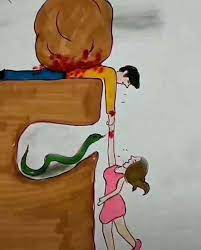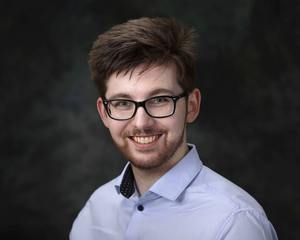Philosophy in Therapy: Inquire, Never Follow
“If anyone thinks he can exclude philosophy and leave it aside as useless, he will eventually be defeated by it in some obscure form or other” Karl Jaspers.

Sitting in a windowless room, with only darkness for a companion.
Outside, raindrops fall softly...
But you have no window
You don’t ‘know’ it’s raining so how can you ‘believe’ that it’s raining?
"Andy, you fool!" you might confidently proclaim "I can hear rain!"
But how can you believe what you hear without knowing it is rain?
You might say “it is raining” and/or “I don’t believe it’s raining”
but you can’t say it is raining if you believe it isn’t
Either
"It is raining, but I do not believe that it is raining"
or
"It is raining, but I believe that it is not raining."
Above is 'Moore’s Paradox', showing conflict between a fact (“It is raining”) and believing the opposite (“It is not raining”).
If you believe something to be true, it:
- Can be true
- Is (logically) consistent; and
- Doesn’t have (obvious) contradictions
The paradox of hearing rain in a windowless room asks you to consider how and why you believe your thoughts.
Thoughts help guide you through the world safely. But if you consider your thoughts to be facts without understanding why you believe what you believe (irrational thinking/cognitive distortions), it makes sense that confusion might lead to anxiety about not knowing what you should do when you can’t make sense of a situation.
How can you believe what you think; if you don't analyze how and why you think?
When your brain oversimplifies thoughts in a reductionist way, like ‘negative’ or ‘positive’, it forces you to pay the price of being blind to virtually everything else that isn't simple to define as ‘positive’ or ‘negative’ (confirmation bias).
Ever said ‘I know it rationally, but…?” The ‘but’ generally suggests there’s a lot of missing information in your analysis, making it difficult to work out what to do for a solution.
Philosophy, like therapy focusses on how you act and engage with the world…which influences how you act and engage in the world.
Exploring why you think something, as well as what you think, helps you learn how to respond to unhelpful/disturbing events in life.
Understanding the why helps your ability to rationalise, think critically, teaches problem solving abilities and sort through your personal beliefs.
You learn thoughts aren’t facts, and feelings aren’t forever.
Truth is subjectivity
Therapists must become more engineers of souls than scientists.
While tools/techniques are helpful and practical, it is unlikely that you will progress far if therapy is focused on the 'success' of tools and techniques at the cost of thinking and connecting to you.
Struggling to respond to your experience in a healthy way and discover wisdom/lessons in trauma is one of the reasons why trying various 'techniques' on their own does not address your issues.
If you’re looking for a therapist, the type of therapy they practice is naturally important. But trust your instincts and seek someone you feel you can connect to and be honest with.
You’re more than just a formulation, a psychological theory, or puzzle to be worked out. Your experiences, beliefs and truths are as unique as your fingerprint.
Thoughts can’t ‘treat’ life
On my main page, I ask if anything in this world can trouble you more than your thoughts?
Thoughts are tools that help us get what we want. If you don't know how or what to think, your beliefs risk becoming meaningless.
I’m sure you’ve had thoughts which cause physical pain? (psychogenic pain) thinking is painful and more demanding than anything else…apart from not thinking.
Knowing how to think, in my opinion, is more important than learning what to think. People don’t ‘think’ so much as thoughts ‘appear’ in our heads and we believe them, with self-criticism often being misinterpreted as constructive thinking.
We are what we think. All that we are arises with our thoughts. With our thoughts we make the world
Healthy thinking is not about controlling what comes into our mind.
Rather, the ability to examine a thought objectively, and then engaging it to understand if it has any worth or is attempting to teach you something. Like an editing function, where different parts of yourself are in dispute – bargaining, negotiating, and compromising.
Healing is neither a destination or the absence of ‘negative’ emotion (e.g., pain, anger or sadness). But is a matter of how you react to and respond to challenges when they occur.
My philosophy of therapy

A therapist without a philosophy is like an architect without a plan: I feel there’s no context and little meaning in words spoken by therapists trying to explain the therapeutic process in the absence of philosophy.
Carl Rogers (Person-Centred Therapy) believed that therapists have a moral obligation to work on themselves as an individual to offer authenticity in therapeutic relationships. If you don’t reveal yourself to yourself you can’t reveal yourself to others.
In life we never really know the pressures others are under, and often people don't know what you're going through either. Like how the woman in the picture can’t see the boulder, and the man can’t see the snake.
Acceptance and empathy are key for understanding each other, allowing you to see the boulder/snake. When experiencing this with a therapist, the safety that comes from this process of self-discovery is curative - allowing you to grow, heal and fulfil your potential (self-actualization).
If you want authenticity, you speak your truth, strive for the good while being open to being wrong.
But what you think to be true is more of a ‘tool’ than a statement about objective truth. It’s difficult to make absolute statements about what ‘is’ – only what ‘is/was at a point in time.’
Truth, right, and wrong can only be judged in context, and no one truth or right can be applied universally (relativist stance).
From error to error one discovers the entire truth
Memories (and that which causes mental distress) are like pictures, capturing a shadow of reality which we can connect to and share with others.
But your memories are different from truth, as your memories can’t capture reality.
While you can’t offer someone reality itself from your memory, you may provide them with the shadows of what your memories have captured.
In sessions, that generally means I try to understand what clients aim at in life from a moral point of view and communicate with a genuine sense of purpose, while being open to being corrected.
Self-realization leads you to the path to self-transcendence, building an identity that enables you to stand strong as an individual among others while being conscious of your limits.
Overcoming yourself allows you to live life as a process, not an event. Or to put it another way, self-development is less about 'figuring everything out' and more about daily learning and applying the lessons to your life.
Therapy helps you learn your value isn’t reliant on others validating your worth, but through building a more authentic relationship with yourself, others, and the world (congruence). And that you can influence the outcome of events in your life (internal locus of control).
Inquire, don’t follow

In therapy, people often become inquirers about their experience and stop following a belief that thoughts are facts.
This often happens when you’re in a relationship with someone who compassionately inquires how you know what you know and why you believe what you think, listening carefully while seeking a healing truth in the relationship.
Inquirers create their own maps of life, healing through finding the wisdom in trauma, accepting flaws, faults, and shortcomings.
You, seeking authenticity brings us all closer to understanding what reality and truth is, as we can challenge and correct each other.
Questioning other people's experiences helps form your own unique picture of reality, which helps you decide how to live your life.
That makes you the expert on you, and who you could be.
But! follow someone else's map, you lose the value of your own point of view and the chance to be corrected (regardless of whether you believe the person you're following is right or wrong).
The deeper you go into your relationship with yourself, the more you discover. And how we explore relationships with ourselves, others and the world is a great puzzle.
If you wish to strive for peace of soul and pleasure then believe; if you wish to be a devotee of truth then inquire
This post expresses my thoughts on how philosophy fits into the therapy.
I invite you to disagree, challenge and critique.
But I also encourage you to ask yourself why you believe your thoughts? Just as I’d ask how you can believe what you hear without knowing it's rain in a windowless room?
My philosophy in therapy is to meet you as an inquirer, not a follower.

Getting started
To arrange an appointment, you can email me at andrew.kidd@firstpsychology.co.uk or contact the First Psychology Services Team on 0141 404 5411.
